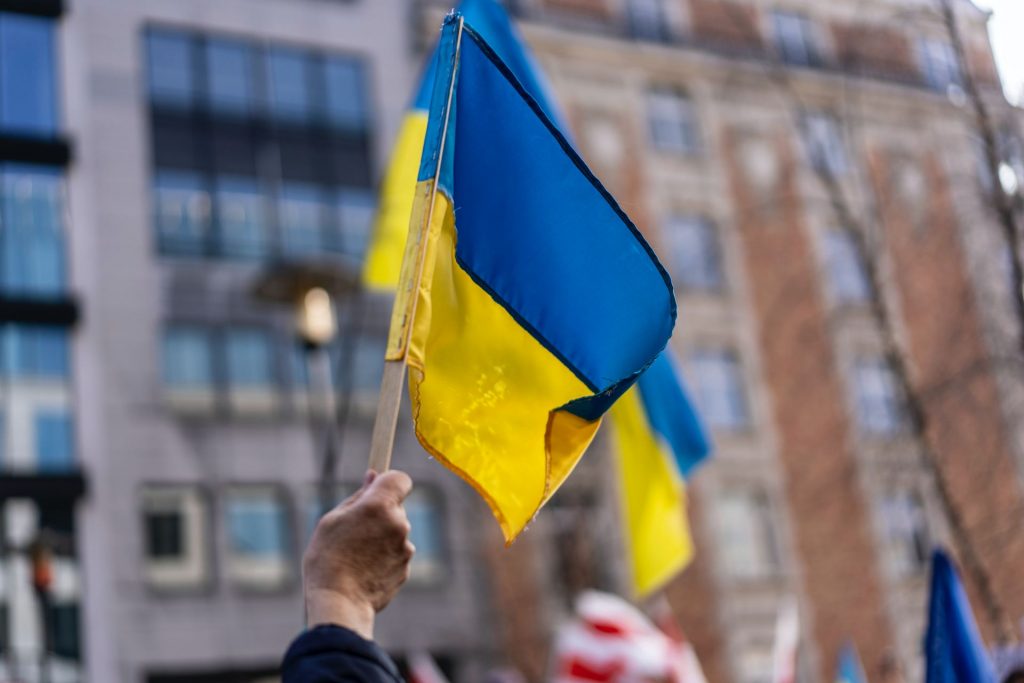By Pieter Bevelander
Currently many West European countries and more East European societies are meeting the flow of refugees from war-torn Ukraine with openness and great solidarity. In Sweden 34,000 Ukrainians had officially sought asylum status by 30th April but many more had crossed over the border by this date. The Migration Studies Delegation (DELMI), an independent government committee of which I am a board member, has looked closely at what we have learned from past refugee experiences in Sweden in order to inform policy makers today. This post is primarily based on our research and recommendations.
At the moment, in many European countries there is quite wide public support for new arrivals from Ukraine, but how this will look if the war is prolonged and numbers continue to increase is uncertain. There are several factors that might break the consensus here in Sweden as well as in other countries, including employment and housing issues and whether support is at the national or local level. Moreover, if the EU attempts to impose a system to redistribute refugee numbers, it risks leading to new tensions and negatively impacting on public opinion. Notably, the so-called Visegrad countries, which were strongly opposed to redistribution of refugees in 2015/16, are now the main recipients of people displaced from Ukraine. How Hungary reacts to the war and its consequences will be of particular interest.

At the same time, conditions today are very different to 2015. Most importantly, EU Member States have decided to activate the Temporary Protection Directive for the first time for Ukrainian refugees. In Sweden this means that those covered by the Directive are subject to a special process that grants a residence permit only a few days after the application has been registered. This gives them the right to work, access to basic healthcare, schooling for children and some financial assistance. This simplified process means it is possible to get different types of integration processes started quickly.
The purpose of the Directive is to provide temporary protection. At the same time, previous experience tells us that those who come to Sweden are likely to settle here. Many new arrivals from Ukraine are well placed to establish themselves in the Swedish labour market. They are well educated, speak English and have worked in industries that are currently experiencing labour shortages. In these cases, digital tools and services can facilitate matching between newcomers and employers. For those who do not have the same level of education and skills, however, investment is needed before they can enter the Swedish labour market.
Recognising that Ukrainians are likely to stay in Sweden, Swedish decision-makers should, firstly, prioritise policy initiatives that support labour market entrance for refugees from Ukraine. Previous refugee reception also shows that it is important to get started with integration quickly. Secondly, Swedish decision-makers should ensure that refugees are given easy access to information about Swedish society.
A distinguishing feature of the Ukrainian refugee group is that the majority of those entering Sweden are women and children, meaning a prerequisite for establishment and integration in Sweden is access to school and preschool. Thirdly, then, Swedish decision-makers should enable children from Ukraine to access school and preschool full time immediately. This is important for children and also necessary for their mothers to be able to work.
The Temporary Protection Directive gives Ukrainians the right to move freely within the EU. This is positive but also creates a political dilemma. As we saw in 2015, refugees, understandably, may be more attracted to states that offer more generous reception conditions. A fourth focus for Swedish decision-makers should therefore be on labour market integration. This means more people can support themselves and, as taxpayers, contribute to common needs.
Sweden and other donor countries’ support for Ukrainian refugees risks undermining the world’s ability to support others fleeing equally heinous situations. The OECD Development Assistance Committee allows its members to count the first 12 months of refugee reception costs as aid. This was agreed following 2015/16 when just over a third of Swedish development assistance was directed to refugee reception in Sweden (approximately SEK 30 billion over two years – the Swedish ODA budget was temporarily allowed to exceed 1% of GNI in 2015).
Europe is now facing its largest mass displacement since World War II. After only four weeks, more than twice as many had fled Ukraine than the 1.3 million people who entered the EU in 2015. Some forecasts suggest that there may be as many as 12 million Ukrainian refugees in the near future to the EU. If this is financed by making maximum settlements from existing development assistance budgets there is a risk that European development aid to the rest of the world will collapse – and this during a year that, even before the Ukrainian refugee crisis, saw escalating humanitarian needs in the wake of the pandemic and more people fleeing their home countries than ever before.
Sweden, like the rest of the world, needs to realise that 2022 is an exceptional year that requires exceptional efforts, even outside Swedish and European borders. Therefore, the final and fifth priority for Swedish decision-makers should be the development aid budget and their support for those caught up in crises such as Syria/Lebanon, Afghanistan, the Horn of Africa and the Sahel, in order to prevent even more people from being forced to flee. The exceptional circumstances motivate us to invest resources in both war refugees and aid. It is not only in the interest of Sweden but also of humanity. Our solidarity knows no other boundaries than those we set ourselves.

